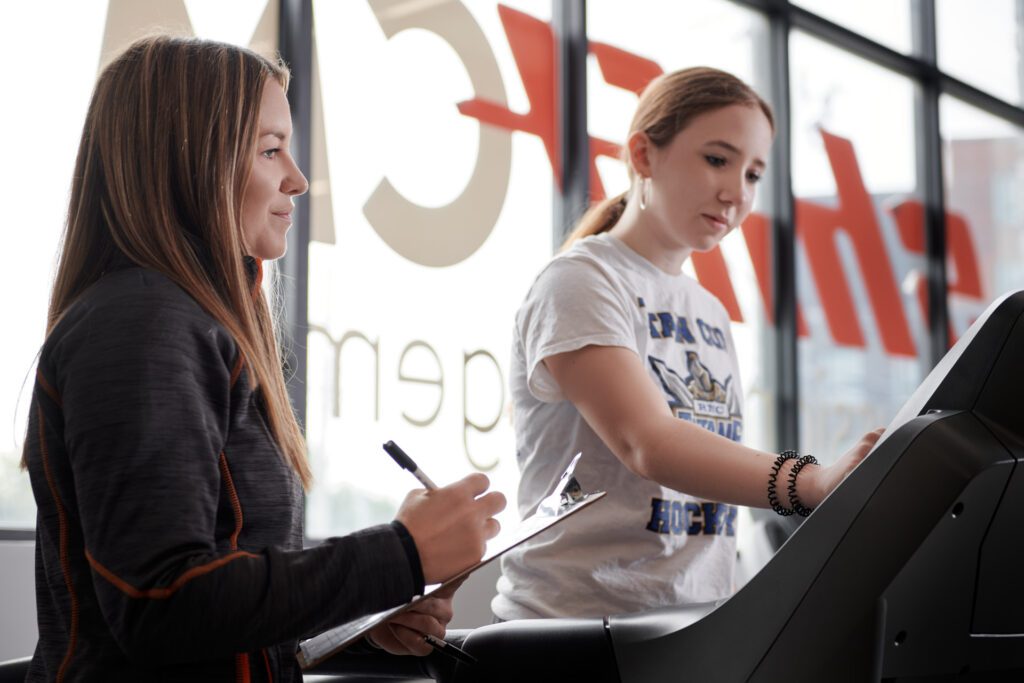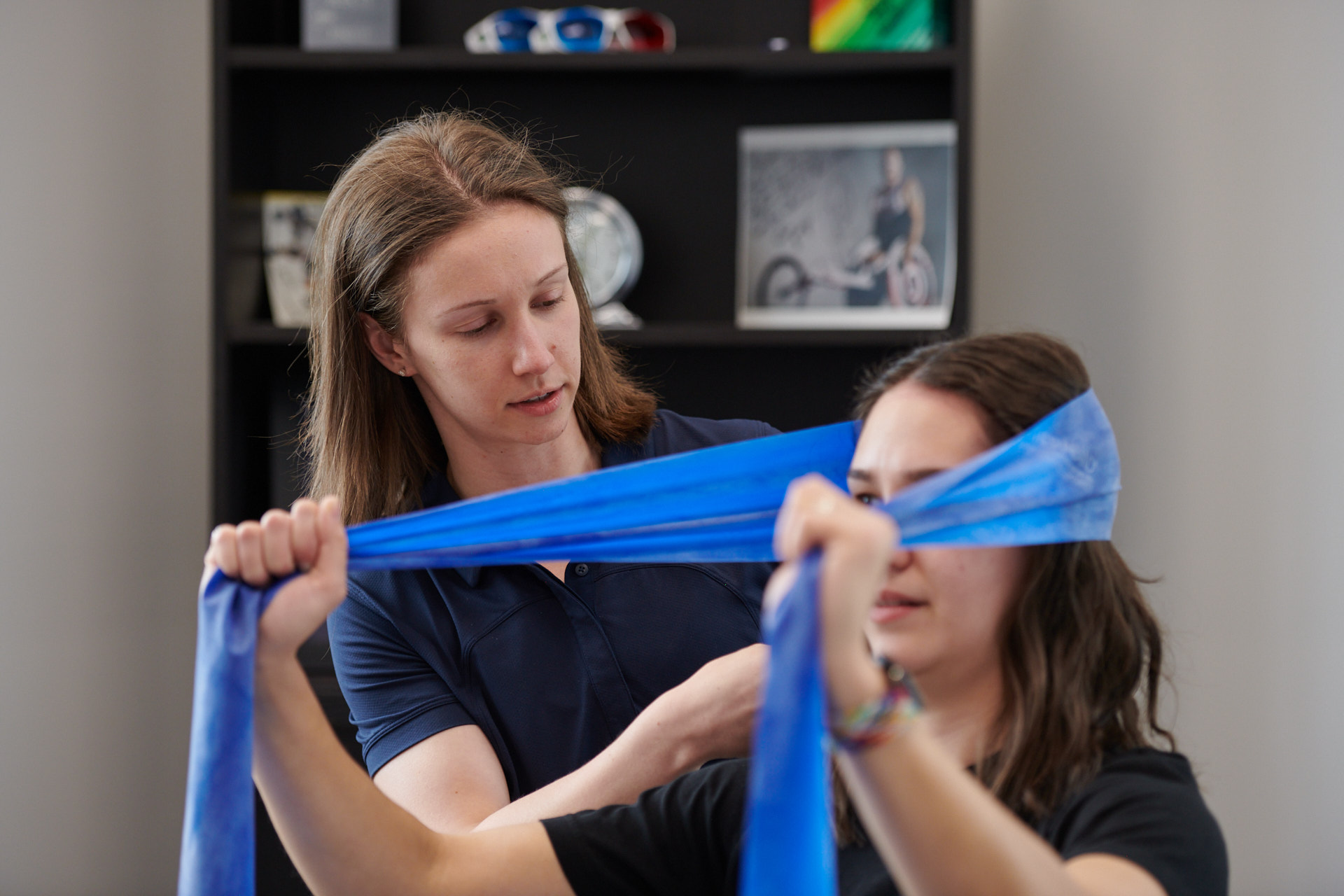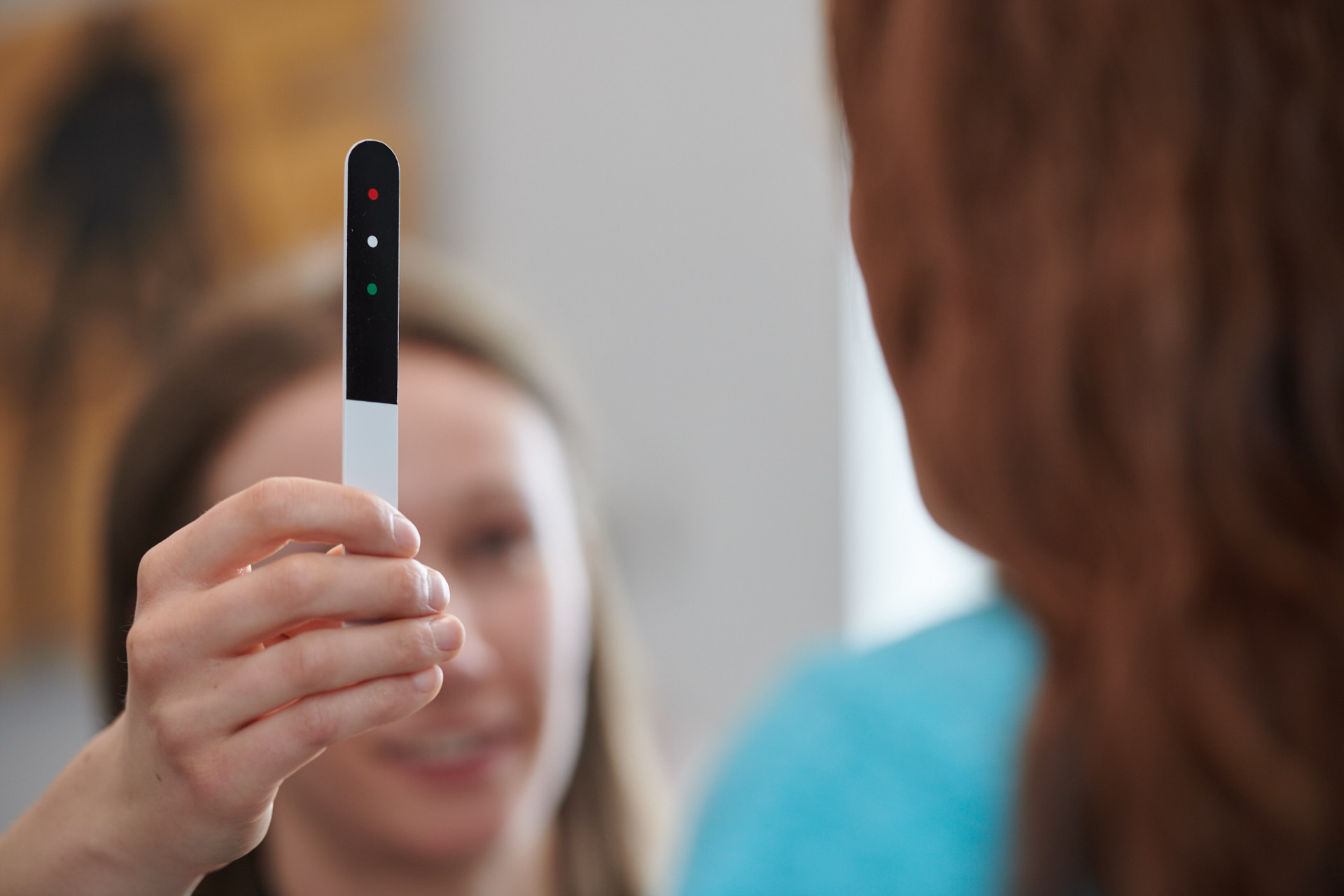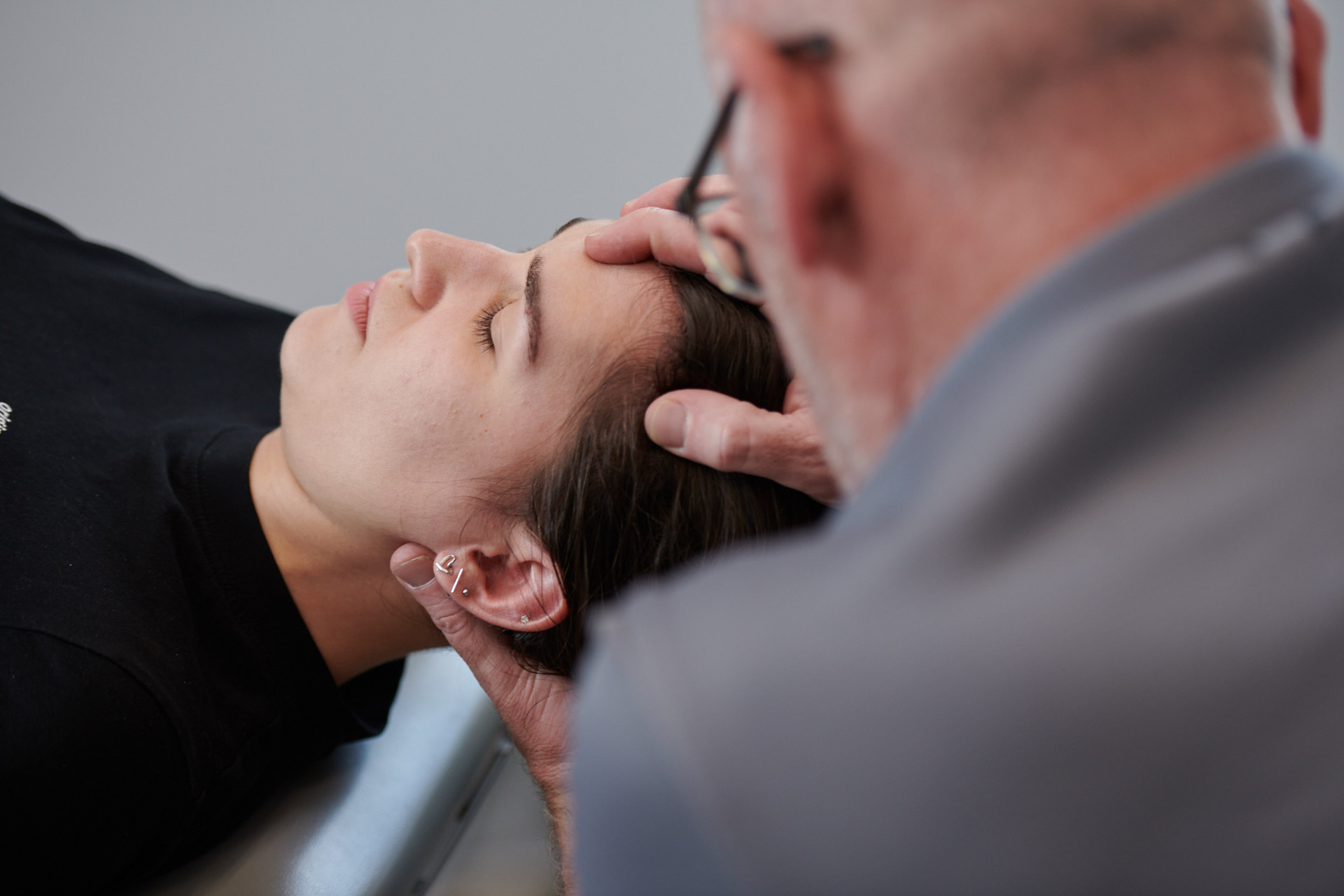A concussion is more than just a bump on the head—it’s a brain injury that requires careful attention and a personalized approach to recovery. If you’re feeling the effects of a recent concussion, you’re likely experiencing a mix of emotions: confusion, frustration, and maybe even a bit of fear. It’s important to remember that concussion recovery is a journey, and it looks different for everyone. Let’s explore the path to healing, address common concerns, and equip you with the tools and strategies you need to navigate this experience with confidence.
Key Takeaways
- Give your brain a break: Rest over the first couple of days is important. Step away from screens, work, and mentally taxing activities. Gradually ease back into your routine as your symptoms improve.
- Everyone’s recovery looks different: While most people recover from a concussion within a few weeks, some might experience symptoms for longer. Don’t compare your recovery to others and celebrate your progress, no matter how small.
- You don’t have to go through this alone: Reach out to your healthcare provider if you have any concerns about your recovery. Connecting with loved ones and seeking support groups can provide emotional support and guidance.
What Is a Concussion?
A concussion is a type of traumatic brain injury (TBI). It happens when your brain is jolted inside your skull, often from a bump, blow, or jolt to your head or even your body. This sudden movement causes your brain to move rapidly back and forth, stretching and temporarily altering the function of cells within the brain.
While the effects of a concussion are often temporary, they can still disrupt how your brain normally functions. This can lead to a range of symptoms, which we’ll discuss in detail later on. The important thing to remember is that a concussion is not just a simple bump on the head; it’s a type of brain injury that requires early diagnosis, attention and care to ensure you heal properly and prevent further complications.
What is the Typical Concussion Recovery Timeline?
Let’s face it, recovering from a concussion can feel like navigating uncharted territory. One of the most common questions is, “How long will this last?” While there’s no one-size-fits-all answer, understanding the typical recovery timeline can help you set realistic expectations and focus on healing.
Generally, concussion symptoms resolve within two to four weeks after the injury. This means you can expect a gradual reduction in symptoms as your brain heals. However, it’s important to remember that everyone’s recovery journey is unique.
For example, children with a concussion may take a little longer to recover – up to four weeks. As their symptoms improve, they can gradually return to their regular activities. Young Adults, on the other hand, tend to recover a bit faster. The typical recovery time for those over 18 is usually about 2-3 weeks. Most older adults will recover from a concussion in about a month, but some may need a bit more time.
While these timelines provide a general guideline, it’s essential to remember that 10-30% of individuals may experience a longer recovery process. This is known as “persistent post concussion symptoms” (PPCS), where symptoms persist beyond the expected timeframe. If you find that your symptoms are lingering or worsening, don’t hesitate to seek medical attention.
Remember, healing takes time. Be patient with yourself and focus on supporting your body’s natural healing process.
Take These Critical First Steps After a Concussion
Okay, so you’ve had a concussion. What now? The first 24-48 hours are crucial, and knowing what to do immediately can significantly impact your recovery. Don’t worry, we’ll break it down into simple steps.
First things first: prioritize rest. Your brain needs time and energy to heal, so consider this your permission to take a break. For the first 24-48 hours, minimize activities that demand a lot from your brain. That means easing up on work or school, putting down the video games, and stepping away from social media. This will help reduce your symptoms and give your brain the space it needs to mend.
Think of it like recovering from the flu – you wouldn’t run a marathon with a fever, right? The same principle applies here. The CDC recommends a brief period of rest for the first day or two.
After the first two days, gradually ease back into activities. Start with light activities and slowly increase the intensity and duration as your symptoms allow. This might mean taking short walks, reading for brief periods, or engaging in light chores.
Be sure to avoid any activities that put you at risk for another head injury. This is non-negotiable, especially during those initial weeks. That means hitting pause on contact sports, skiing, or any activity that could lead to another bump on the head. Your brain is already working hard to heal, so let’s not add any unnecessary stress.
If your symptoms linger or worsen, don’t hesitate to seek medical attention. It’s always better to err on the side of caution and consult with a healthcare professional. They can assess your situation, provide personalized advice, and ensure you’re on the right track to a full recovery.
Do This, Don’t Do That: Concussion Recovery – First 48 Hours
Recovering from a concussion requires patience and a measured approach. While you focus on healing, here are some things to avoid and others to embrace:
Activities to Avoid
- Screen Time Overload: Your brain needs a break, especially in the initial days following a concussion. Try to avoid (or significantly limit) screen time, including television, computers, and smartphones, for the first 48 hours after your injury. After this time period you can begin building back in short periods of screen use while monitoring your symptom response. If you find your symptoms flaring up a lot when you engage with screens, step away and give yourself a break.
- Risky Business: It’s crucial to avoid activities that could lead to another head injury. This means putting contact sports and other high-impact activities on hold until you’re medically cleared.
Recommended Activities and Exercises
- Embrace Calm: Think quiet and relaxing. Talking to family and friends, going for a walk, listening to music or a podcast are all excellent options in the early stages of recovery. You can find more information and resources on managing the early stages of concussion in this article on what to do after a concussion.
- Gradual Increase is Key: As your symptoms improve, you can gradually increase both mental and physical activity. Start with short walks and gradually increase the intensity and duration as tolerated. Small symptom increases that improve shortly after activity are OK and to be expected. However, severe symptom flare-ups may indicate a need to pull back on the type, intensity, or duration of activity you are engaging in. If you experience persistent symptoms like neck pain, dizziness, or sleep problems, consider reaching out to a Trained Healthcare Professional to seek treatment.
Remember, every concussion is unique, and recovery is a personal journey. Listen to your body, follow your healthcare provider’s guidance, and prioritize your well-being.
Manage Your Symptoms With These Effective Strategies
Recovering from a concussion is a journey, not a race. While there’s no magic bullet, research points to several strategies that can help you manage your symptoms and support your brain’s natural healing process. Think of these strategies as the building blocks of a solid recovery plan.
Rest and Sleep
Think of rest as your brain’s way of hitting the “pause” button. In those initial days after a concussion, rest is important. This means giving your brain a break from activities that can worsen your symptoms, like working on the computer, reading, or watching TV. The CDC emphasizes the importance of rest in those early days to allow your brain to heal.
Getting enough sleep is also essential. Aim for seven to nine hours of quality sleep each night. A good night’s sleep can work wonders in supporting your brain’s natural healing process.
Gradually Return to Activities
As you start feeling better, it’s important to ease back into activities gradually. The Mayo Clinic recommends a structured approach, especially for athletes, to ensure a safe and successful recovery. You can learn more about navigating the recovery process in our article: 4 Stages of Concussion Recovery.
Start with light activities like short walks and gradually increase the intensity and duration as your symptoms allow. Remember, it’s okay to take breaks when you need them. Listen to your body and don’t push yourself too hard, too soon.
Nutrition and Hydration
You know the saying, “You are what you eat?” Well, it’s especially true during concussion recovery. Experts at the University of Michigan Health stress the importance of proper nutrition and hydration during this time.
Focus on eating a balanced diet rich in fruits, vegetables, lean proteins, and whole grains. And don’t forget to stay hydrated! Water is your best friend during recovery, so make sure you’re drinking plenty of it throughout the day.
Track and Monitor Your Symptoms
Think of symptom tracking as your recovery journal. It’s a way to stay informed about how you’re feeling and to spot any potential red flags. The CDC recommends closely monitoring your symptoms, especially in the first 24-48 hours after your injury.
When to Seek Medical Attention During Concussion Recovery
You’ve taken the right first steps after a head injury, but how do you know if your recovery is on track? While most people recover from a concussion within a few weeks, it’s important to stay vigilant and seek medical advice if needed.
Here are a few situations where you should consult a healthcare professional:
- If symptoms linger. It’s normal for concussion symptoms to last for a few days or even weeks. However, follow-up with your doctor if your symptoms don’t improve within two to three weeks, or if they worsen after you start resuming normal activities.
- If you experience concerning symptoms. Some symptoms require immediate medical attention. Seek help right away if you experience loss of consciousness after a head injury, have thoughts of harming yourself or others, or develop a severe headache that worsens over time.
- If your child sustains a head injury. Always err on the side of caution with children. If your child experiences a head injury, contact their pediatrician for guidance, even if symptoms seem mild. Be sure to monitor your child for any signs of a concussion, especially in the first 24 to 48 hours.
Remember, it’s always best to err on the side of caution when it comes to head injuries. Don’t hesitate to reach out to a healthcare professional if you have any concerns about your recovery. Early intervention is key to ensuring a smooth and complete recovery.
Support a Loved One Recovering From a Concussion
Recovering from a concussion can be a lonely and frustrating process. If you’re supporting someone going through it, know that your patience and understanding are invaluable. Here’s how to offer practical and emotional support:
Encourage Open Communication: After a concussion, people often struggle with communication. They might have trouble finding the right words or processing information. Practice patience and create a safe space for them to express themselves.
Understand Their Challenges: Cognitive functions like memory and concentration can be affected by a concussion. Try to be understanding if your loved one forgets things, seems easily confused, or has difficulty focusing. Cognitive difficulties often improve over time.
Advocate for Their Needs: Your loved one might need help communicating their needs to doctors, employers, or even friends and family. Don’t hesitate to advocate for them and ensure they receive the support and accommodations they require.
Promote a Holistic Approach: Recovery isn’t just about the physical symptoms. Encourage your loved one to engage in occupational therapy, counseling, or support groups. Addressing the emotional and mental aspects of recovery is crucial.
Celebrate Small Victories:
Recovery is a journey with its ups and downs. Celebrate even the smallest milestones and improvements. Your encouragement can make a world of difference.
Remember, you’re not alone in this. Concussion Hub offers a wealth of resources and support for patients and their families. Don’t hesitate to reach out and connect with others who understand what you’re going through.
Debunking Common Concussion Recovery Myths
There’s a lot of misinformation floating around about concussions. Let’s set the record straight on some common myths:
Myth: Complete rest is the best approach after a concussion.
Fact: While rest is crucial in the initial days following a concussion, staying in bed for an extended period can actually slow down your recovery. The University of Michigan Health recommends gradually increasing physical and cognitive activities to help your brain heal.
Myth: All concussion symptoms are immediately apparent.
Fact: Don’t assume you’re in the clear just because you feel fine right after a head injury. The CDC says some symptoms might not surface for hours, or even days. Pay close attention to how you feel in the days following a head injury, and keep your doctor informed.
Myth: Once a person feels better, they can return to sports or other activities.
Fact: Feeling better doesn’t necessarily mean you’re fully recovered. The CDC is clear: resuming activities should be a gradual process, and getting clearance from a healthcare professional is non-negotiable.
Myth: Cognitive rest means avoiding all mental activities.
Fact: Cognitive rest doesn’t mean putting your brain on hold. It’s about striking a balance between rest and gradually reintroducing cognitive tasks.
Myth: Concussion recovery is the same for everyone.
Fact: Just like no two people are the same, no two concussions are the same. The Mayo Clinic emphasizes that recovery timelines vary based on individual factors like age, past injuries, and overall health. A personalized recovery plan is key.
Long-Term Considerations and Follow-Up Care
Recovering from a concussion is a journey, not a race. While many people start to feel better within a few weeks, some individuals may experience lingering effects that require ongoing attention and care.
It’s important to remember that a concussion affects everyone differently. Factors like the severity of the injury, pre-existing conditions, and individual recovery abilities can all influence the length and complexity of the healing process.
If you’re experiencing ongoing challenges after the initial recovery period, don’t hesitate to seek help from qualified healthcare professionals. They can provide specialized support and guidance tailored to your specific needs.
Let’s explore some important considerations for long-term concussion recovery:
- Communication and Cognitive Skills: Speech therapists play a crucial role in identifying and addressing any communication or cognitive challenges that may linger after a concussion. Through comprehensive assessments, they can pinpoint specific areas needing attention and create a personalized treatment plan to help you regain your communication skills and cognitive abilities.
Learn more about how speech therapy can help improve life after a concussion. - Occupational Therapy: Occupational therapy offers a comprehensive approach to concussion recovery by addressing not only the physical aspects but also the cognitive and emotional aspects. Think of it as having a dedicated guide to help you navigate the challenges of daily life after a concussion. Occupational therapists can equip you with practical strategies and techniques to manage your symptoms and regain independence in your daily activities. Discover how occupational therapy strategies can aid in concussion recovery.
- Rehabilitation Strategies: A combination of cognitive behavioral strategies, and active rehabilitation approaches can significantly improve recovery outcomes. Cognitive behavioral therapy can ease the symptom burden by providing tools to manage emotional and behavioral changes. Active rehabilitation focuses on gradually reintroducing physical activity and sensorimotor stimulation to rebuild stamina and tolerance. Explore behavioral and clinical strategies for active rehabilitation in concussion management.
- Open Communication: Open and honest communication with your healthcare providers, family, and friends is vital throughout your recovery journey. Don’t hesitate to express your concerns, ask questions, and seek support when needed. Consider these strategies to improve communication after a brain injury.
- Understanding Recovery: It’s essential to remember that recovery is not always linear. There may be good days and challenging days. Be patient with yourself and celebrate small victories along the way. Read more about cognitive exercises for post-concussion syndrome.
Remember, you’re not alone in this journey. With the right support and resources, you can navigate the long-term considerations of concussion recovery and work towards regaining your well-being.
Frequently Asked Questions
I feel okay, can I go back to my regular activities?
It’s tempting to jump back into your regular routine as soon as you start feeling better, but it’s essential to listen to your body and your healthcare provider’s advice. Returning to certain activities too soon can hinder your recovery and potentially prolong your symptoms. Focus on gradually increasing your activity level as tolerated and follow your healthcare provider’s guidance on when it’s safe to fully resume your normal activities.
How can I support a loved one who is recovering from a concussion?
Recovering from a concussion can be challenging, and your support can make a world of difference for your loved one. Patience, understanding, and open communication are key. Educate yourself about concussions so you can better understand what they’re going through. Offer practical help like assisting with daily tasks, and encourage them to follow their healthcare provider’s recommendations.
What should I do if my symptoms are getting worse?
If your symptoms are worsening or you experience any new or concerning symptoms, it’s crucial to seek immediate medical attention. Don’t hesitate to reach out to your healthcare provider or go to the nearest emergency room if necessary.
What kind of healthcare professionals can help with concussion recovery?
Depending on your specific needs, a team of healthcare professionals can support your concussion recovery. This might include your primary care physician, neurologists, speech-language pathologists, optometrists, occupational therapists, physical therapists, athletic therapists or chiropractors to name a few. These professionals can address various aspects of recovery, from managing symptoms and improving daily function to regaining physical strength and exercise tolerance.






